This started out, per +Andria Perry 's suggestion on Google +, as a book review. It was hard to write as a book review without including a long overdue obituary blog post. That made a double-length post. To spare your eyes, I'll break it up--since I've already posted a book review this morning, today you get the memorial piece, loaded with book links, and next week the straight book review will appear. Click on any book image to buy the book from the Amazon Associate who posted it there, or use the addresses in the left-hand sidebar to buy any or all of these, or the others, from me.
One of the most valuable books I ever read was The Last Word, actually Book Three in a series that grew to more than twenty books. Prentice Hall published the initial "trilogy" in which this one was the volume that discussed how to make presentations so persuasive that people didn't argue, thus getting "the last word." Other publishers bid higher for some of the other books, and some of the limited-interest books, like the one for verbal self-defense in law enforcement, were self-published; final counts vary depending on what people include.
While the writer known as Suzette Haden Elgin (and as ozarque.livejournal.com ) was alive, she kept the rights to market her books through her own store and web site, so I never wrote reviews of them but steered people straight to her. Now I can sell them as secondhand books for profit, but I've not cared to think about it. She was a good pen friend (and e-friend) for a long time.
In 1987, I was a sickly university dropout, still clinging to a useless hope of recovering my life with the "help" of Seventh-Day Adventists. "Vapping" was their dialect. Sneaky verbal attack patterns were what I'd learned as the way educated people spoke English in Maryland; I knew I didn't enjoy listening to it, and didn't like to be told anyone had guessed I was from Maryland--but I didn't know why. Nor did I know why the non-Adventists in Maryland with whom I worked disliked Adventists and, often, disliked me.
Like a lot of women at that time, I'd experienced life as one big beauty contest; I am indisputably "the plain one" in my family, so maybe people didn't like my face...except that most of the jobs I got were pretty-face jobs, and, on closer examination, people seemed to be more alienated after I talked. Was it my accent? No, in Washington they didn't seem to think I had one. Color? Most people seemed to see me as White. Hostility to "smart," "bold," or "liberated" women? That was no more of a problem in Washington than envy of my looks is in my family; for similar reasons. (I sometimes fail to recognize envy because I've spent most of my life around people more abundantly blessed than I am.) Deep-rooted emotional problems from the past that were unconsciously seeping out...that was the default explanation for eeevvverything in the 1980's, of course, but therapy hadn't uncovered any buried emotional traumas from my early childhood.
Later John Bradshaw would write a book  that described the kind of "childhood wounds" that had made it possible for me to mistake snarky hostility for a regional or class dialect. I never met him, but my psychological profile appears in the chapter of Homecoming titled "Healing Your School-Aged Child." It's a matter of miseducation more than emotional trauma, so I think it's valuable, as did Elgin, to emphasize that improvement is a cognitive process of learning skills...because there are times when a mean mouth is a good thing to have. It's just that those of us who developed a mean mouth in middle school can also benefit from learning more gentle, grown-up ways of communication that weren't taught in the middle schools we attended.
that described the kind of "childhood wounds" that had made it possible for me to mistake snarky hostility for a regional or class dialect. I never met him, but my psychological profile appears in the chapter of Homecoming titled "Healing Your School-Aged Child." It's a matter of miseducation more than emotional trauma, so I think it's valuable, as did Elgin, to emphasize that improvement is a cognitive process of learning skills...because there are times when a mean mouth is a good thing to have. It's just that those of us who developed a mean mouth in middle school can also benefit from learning more gentle, grown-up ways of communication that weren't taught in the middle schools we attended.
Anyway, in 1987 I stumbled across The Last Word in a library, and this book really did change, possibly even save, my life...my business life, anyway. It offered a simple, rational explanation of why some of the things I'd so often heard and said are so annoying, and what to say, instead, when I didn't want to sound like a hateful, poisonous, conceited teenage troll. The Gentle Art of Verbal Self-Defense was just what I needed to go from "dropout and failure-in-life" to "Bright Young Thing whose typing, editing, computer, and hostess skills are valued in diplomatic circles."
Well...until I'd acquired a serious enemy within that community, anyway. But that's another story. (So is the question, "Why diplomatic circles more than federal circles, when you're obviously so much more interested in domestic issues?" but its answer is short enough to fit here: brown eyes.)
Elgin's name was already familiar, though I shared an apparently widespread reaction: "The same person who wrote those wonderfully quirky, short and funny yet deep, tasteful yet intense, science fiction stories, also writes serious nonfiction?" (Or vice versa.) She did. She was. She wrote songs and poems, too, and also blogged, recorded live music, and did visual art. Her old-style Southern Lady voice was consistent throughout. It was only when Earth Song came out that I realized that the Laadan Project (a scientific study of constructed languages) had been real, started subscribing to Elgin's privately printed Newsletters...and made a friend for life.
came out that I realized that the Laadan Project (a scientific study of constructed languages) had been real, started subscribing to Elgin's privately printed Newsletters...and made a friend for life.
Her life wasn't nearly long enough; she was only in her mid-seventies when she "really" retired, even from blogging, and not even eighty when she died. (There will never, ever, be another blogger, blog moderator, writer, polymath, or Southern Lady like her...not that that's stopped me trying.)
I never bought the cassette tapes of her "filksongs," or the "special" booklets and teacher/trainer notes about GAVSD. I did, at some time or other, buy a copy of each of her full-length books except Pouring Down Words; over the years some were damaged or permanently "borrowed," but I still have most of them and can recommend all of them...the novels to anyone who wants to read quirky science fiction novels, and the books about communication to anyone interested in building their skills. And the Ozarque blog, at which the writer discussed all of her books, other projects, interests (including charities), and life.
The Ozarque blog "is being maintained as a memorial." For her many readers, pen friends, and e-friends, it's the best memorial she could have. It revived her writing career at a low point and made her, at an age when most people dismissed blogging as a fad, one of the world's champion bloggers--so, no points for guessing, she was also a booster of blogging and the Internet.
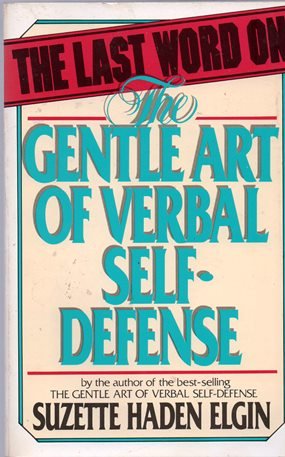

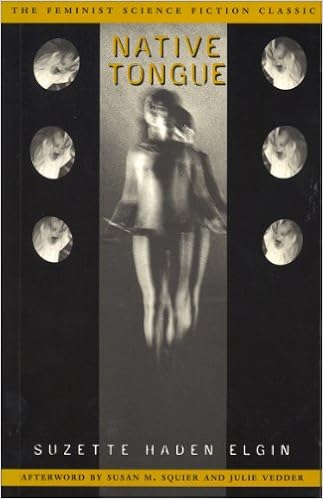
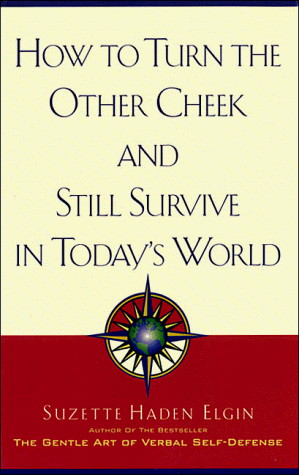
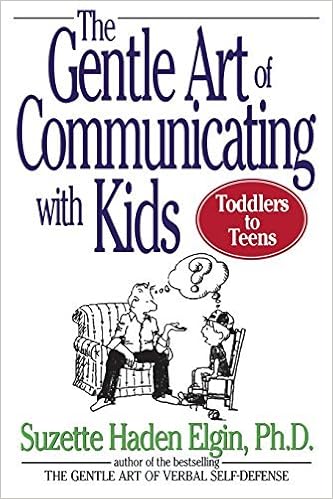
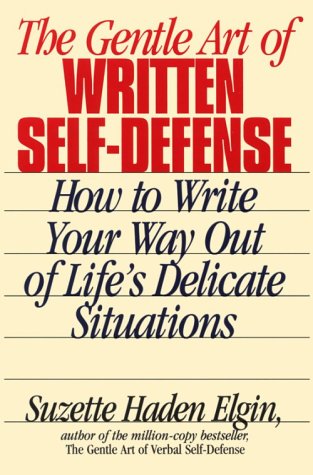


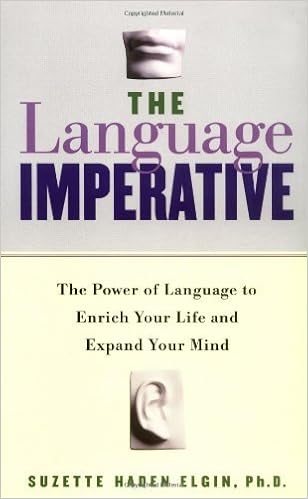

No comments:
Post a Comment